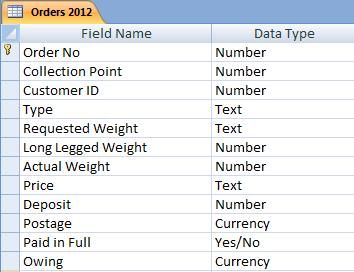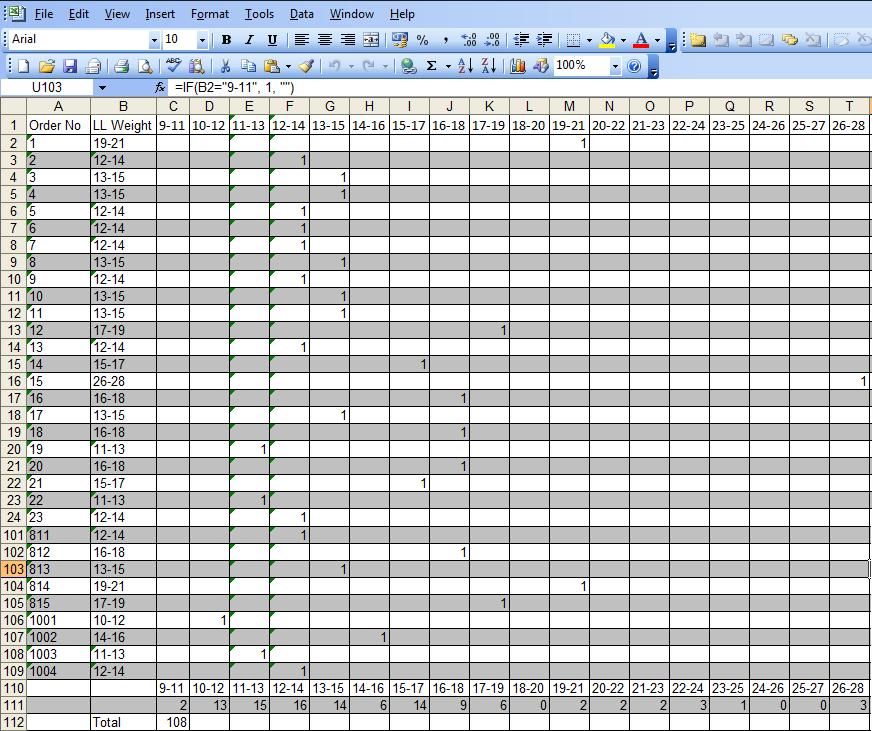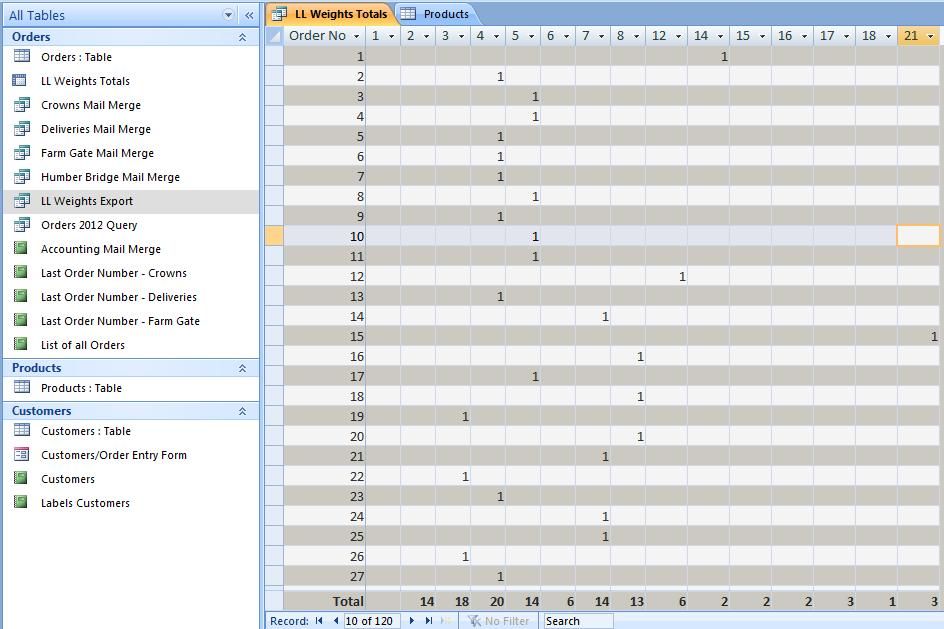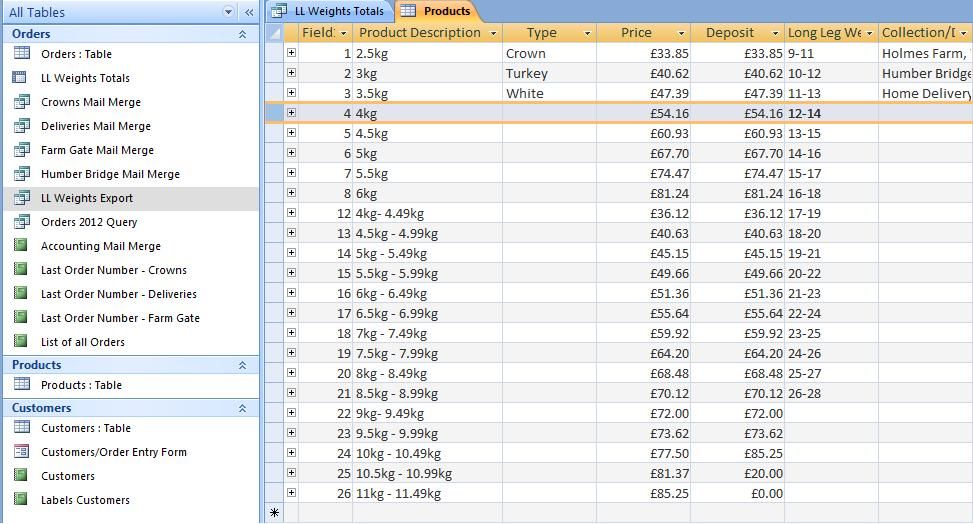Ok I thought you were actually entering a weight, not a weight range in your long legged weight so June was absolutely right with his suggestion of a crosstab query here it is:
Code:
TRANSFORM Count(tblOrders.[Long Legged Weight]) AS [CountOfLong Legged Weight]
SELECT tblOrders.OrderNo
FROM tblOrders
GROUP BY tblOrders.OrderNo
PIVOT tblOrders.[Long Legged Weight];
This assumes your table is called tblOrders and your have a field called [Long Legged Weight] (from the table view screen shot you had)
The summary at the end is possible in a query but you're much better off creating a report based on your crosstab (I'm only suggesting this because you have a very finite list of possible values so there is not a lot of harm in creating a report out of it)






 Reply With Quote
Reply With Quote







